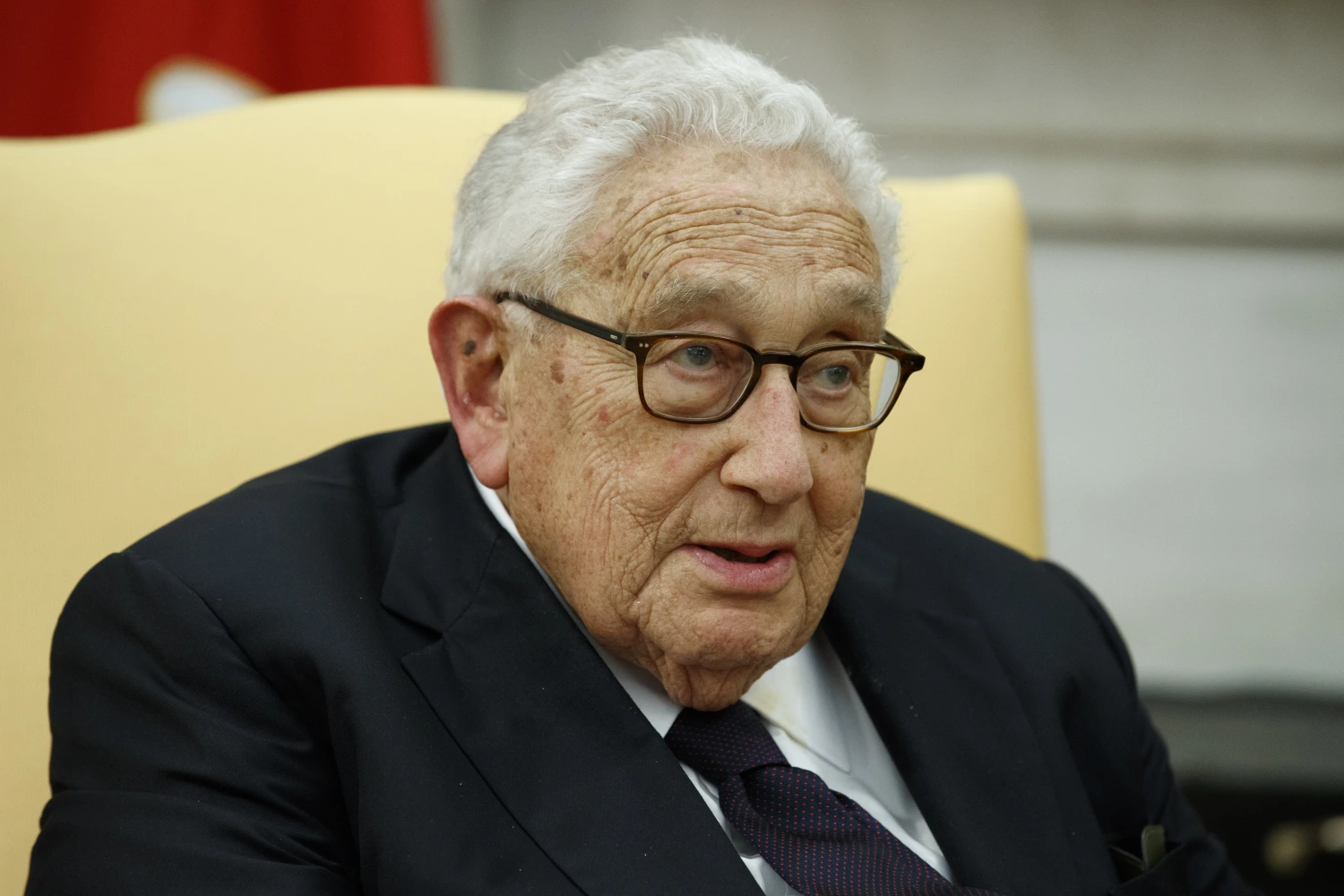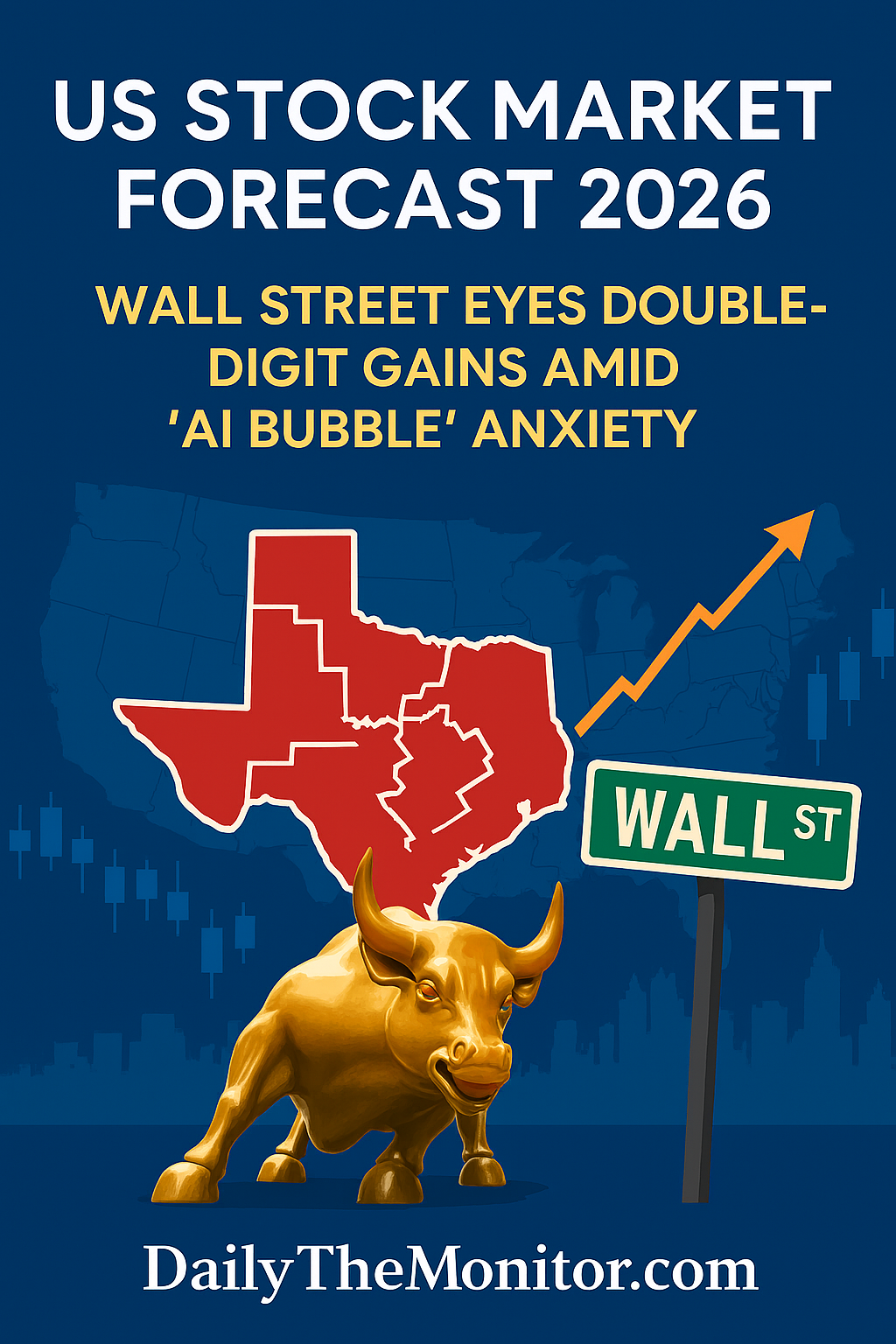AI
US-China Decoupling Could Jeopardize AI Governance: Insights from Henry Kissinger

Table of Contents
Introduction
In the realm of global geopolitics, few figures have commanded as much respect and influence as Henry Kissinger. As a diplomat, strategist, and thinker, he has played an instrumental role in shaping the course of international relations for over half a century. His insights on international affairs have often transcended the boundaries of time and context, providing us with invaluable perspectives on the complex challenges that face the world today. One such challenge, which has been at the forefront of discussions in recent years, is the relationship between the United States and China, particularly in the context of artificial intelligence (AI) governance.

In this extensive opinion piece, we will delve into the views of Henry Kissinger on why a US-China decoupling in the field of AI would have detrimental consequences for global AI governance. We will examine the dynamics of this relationship, explore the significance of AI governance, and consider Kissinger’s insights on how these factors intersect and impact the world’s future.
Understanding the US-China Relationship
The relationship between the United States and China has evolved significantly over the past several decades. From the initial stages of opening diplomatic ties in the 1970s to becoming two of the world’s largest economies, the trajectory of their relationship has been marked by cooperation, competition, and complex interdependence.
During the early years of this relationship, cooperation was the dominant theme. Diplomatic efforts led by Kissinger himself resulted in the normalization of relations between the two countries. This paved the way for economic engagement and trade, which in turn, contributed to China’s rapid economic growth and transformation.
However, as China emerged as an economic powerhouse, the nature of the relationship began to shift. Competition in various domains, including trade, technology, and influence in global institutions, became more pronounced. The rise of China’s tech industry, particularly in AI, further intensified the competitive aspect of their relationship. Both countries began investing heavily in AI research and development, aiming to establish dominance in this crucial technology.
The Significance of AI Governance
Artificial intelligence holds tremendous promise and potential for humanity. It has the capacity to revolutionize industries, enhance healthcare, improve education, and address complex global challenges. However, it also presents a range of ethical, legal, and security concerns that require careful governance.
AI governance refers to the framework of rules, norms, and institutions that guide the development, deployment, and use of AI technologies. It encompasses issues such as data privacy, bias and fairness in AI algorithms, autonomous weapon systems, and the ethical implications of AI in decision-making processes. Effective AI governance is crucial to harness the benefits of AI while mitigating its risks.
In the context of US-China relations, AI governance is not merely a domestic concern but a global one. Both countries are at the forefront of AI research and development, and the decisions they make regarding AI governance will have far-reaching consequences for the entire world. As AI becomes increasingly integrated into various aspects of society, it is imperative that international norms and standards are established to ensure its responsible and ethical use.
Kissinger’s Perspective on US-China Decoupling and AI Governance
Henry Kissinger, in his thoughtful analysis of the US-China relationship, has consistently advocated for a pragmatic approach that prioritizes cooperation over confrontation. He argues that a US-China decoupling in the realm of AI would be detrimental to global AI governance for several reasons.
- Interconnectedness: Kissinger highlights the deep interconnectedness of the US and Chinese tech sectors. Companies from both countries collaborate, invest, and compete in the global tech ecosystem. A sudden and extensive decoupling would disrupt supply chains, research collaborations, and the flow of talent, harming technological progress and innovation.
- AI Development: China has made significant strides in AI development, often focusing on applications that differ from those in the West. A decoupling could lead to the parallel development of AI technologies with different values, standards, and goals, potentially creating a global divide in AI governance.
- Global Norms: Kissinger underscores the importance of establishing global norms for AI governance that reflect a consensus among major stakeholders, including the US and China. A decoupling could hinder the negotiation and implementation of such norms, leaving a void that could be filled by conflicting standards and regulations.
- Coordinated Responses: In the face of ethical dilemmas and challenges associated with AI, Kissinger argues that it is crucial for the US and China to work together to find common ground. Whether it’s addressing algorithmic bias or the use of AI in surveillance, coordinated responses are more likely to yield meaningful results.
- Global Leadership: As AI becomes increasingly central to technological advancement, global leadership in AI governance is a position of significant influence. Kissinger contends that the US and China should vie for leadership in shaping AI governance rather than isolating themselves from each other. Cooperation in this domain can help set the agenda for global AI norms.
Conclusion
Henry Kissinger’s perspective on the US-China decoupling and its impact on AI governance offers a valuable and nuanced view of the complex dynamics at play in the global arena. While competition between the US and China in the realm of AI is undeniable, Kissinger’s emphasis on cooperation and coordination is a timely reminder of the importance of finding common ground in addressing the challenges posed by artificial intelligence.
As AI continues to evolve and shape the future, the world must come together to develop ethical frameworks and governance structures that ensure its responsible use. A US-China decoupling would not only hinder progress in AI but also risk fragmenting the global AI governance landscape. To navigate this critical juncture in history successfully, policymakers, technologists, and diplomats must heed Kissinger’s wisdom and strive for collaborative solutions that prioritize the common good of humanity over individual interests.
Discover more from The Monitor
Subscribe to get the latest posts sent to your email.
AI
US Stock Market Forecast 2026: Wall Street Eyes Double-Digit Gains Amid ‘AI Bubble’ Anxiety

Table of Contents
Executive Summary: Key Takeaways
- Bullish Consensus: Major banks including Morgan Stanley, Deutsche Bank, and JPMorgan project the S&P 500 could breach 8,000 by 2026, implying double-digit upside.
- The “Capex” Conundrum: Big Tech is on track to spend over $400 billion on AI infrastructure, sparking fears of a 2000-style dot-com crash if ROI lags.
- Sector Rotation: Smart money is looking beyond the “Magnificent Seven” to utilities, industrials, and defense stocks that power the physical AI build-out.
- Fed Pivot: Falling interest rates in 2026 are expected to provide a critical tailwind for valuations, potentially offsetting slowing AI growth rates.
The Lead: A Market Divided
Wall Street has drawn a line in the sand for 2026, and the numbers are aggressively bullish. Despite a creeping sense of vertigo among retail investors and murmurs of an “AI bubble” in institutional circles, the heavyweights of global finance are betting on a roaring continuation of the bull market.
The central conflict defining the 2026 US Stock Market Forecast is a high-stakes tug-of-war: On one side, massive liquidity injections and corporate tax tailwinds are driving S&P 500 projections to record highs. On the other, the sheer scale of Tech sector CapEx—spending money that hasn’t yet returned a profit—is creating a fragility not seen since the late 1990s.
The Bull Case: Why Banks Are Betting on 8,000
The bullish thesis isn’t just about blind optimism; it is grounded in liquidity and earnings broadening.
Morgan Stanley has set a towering target of 7,800, citing a “market-friendly policy mix” and the potential for corporate tax reductions to hit the bottom line. Their analysts argue that we are entering a phase of “positive operating leverage,” where companies trim fat and boost margins even if top-line revenue slows.
Deutsche Bank is even more aggressive, eyeing 8,000 by year-end 2026. Their rationale hinges on a successful “soft landing” orchestrated by the Federal Reserve. As rates stabilize and eventually fall, the cost of capital decreases, fueling P/E expansion not just in tech, but across the S&P 493 (the rest of the index).
JPMorgan offers a nuanced “Base Case” of 7,500, but their “Bull Case” aligns with the 8,000 predictions. Their strategists highlight that earnings growth is projected to hit 13-15% over the next two years. Crucially, they believe this growth is broadening. It is no longer just about Nvidia selling chips; it is about banks, healthcare firms, and retailers deploying those chips to cut costs.
The Bear Counter-Argument: The $400 Billion Question
While the targets are high, the floor is shaky. The “Elephant in the Room” is the unprecedented rate of spending on Artificial Intelligence without commensurate revenue.
Collectively, hyperscalers (Microsoft, Google, Amazon, Meta) are pacing toward $400 billion in annual capital expenditures. This “Capex Supercycle” has investors jittery. Recent reports of slowing growth in Microsoft’s Azure AI division—missing analyst estimates—have acted as a tremor, hinting that the seemingly infinite demand for AI might have a ceiling.
The fear mirrors the Dot-com Bubble. In 2000, companies overbuilt fiber-optic networks anticipating traffic that didn’t arrive for years. Today, the risk is that companies are overbuilding data centers for AI models that businesses aren’t yet ready to monetize. If Big Tech margins compress due to this spending, the S&P 500—weighted heavily in these names—could face a correction of 10-20%, a risk explicitly acknowledged by executives at Goldman Sachs.
Sector Watch: Where the Real Value Hides
If the tech trade is crowded, where is the “smart money” moving for 2026?
- Utilities & Energy: AI models are thirsty. They require massive amounts of electricity. Utilities are no longer just defensive dividend plays; they are growth engines essential for the AI grid.
- Industrials: The physical build-out of data centers requires HVAC systems, steel, and logistics. This “pick and shovel” approach offers exposure to the AI theme without the valuation premium of a software stock.
- Defense & Aerospace: With geopolitical fragmentation continuing, defense spending is becoming a structural growth story, detached from the vagaries of the consumer economy.
Wall Street Consensus: 2025 vs. 2026 Targets
The table below illustrates the widening gap between current trading levels and the street’s 2026 optimism.
| Bank / Firm | 2025 Year-End Outlook | 2026 Price Target | Primary Catalyst |
| Deutsche Bank | ~7,000 | 8,000 | Robust earnings growth & AI adoption |
| Morgan Stanley | ~6,800 | 7,800 | Tax cuts & Fed easing |
| Wells Fargo | ~6,900 | 7,800 | Inflation stabilization |
| JPMorgan | ~6,700 | 7,500 – 8,000 | Broadening earnings (Base vs Bull case) |
| HSBC | ~6,700 | 7,500 | Two-speed economic growth |
Conclusion: Navigating the “Wall of Worry”
The consensus for 2026 is clear: the path of least resistance is up, but the ride will be volatile. The projected double-digit gains are contingent on two factors: the Federal Reserve cutting rates without reigniting inflation, and Big Tech proving that their billions in AI spending can generate real cash flow.
For the savvy investor, 2026 is not the year to chase an index fund blindly. It is the year to look for cyclical rotation—investing in the companies that build the grid, finance the expansion, and secure the borders, while keeping a watchful eye on the valuations of the Magnificent Seven.
Discover more from The Monitor
Subscribe to get the latest posts sent to your email.
AI
The Return of the Dragon’s Allure

For much of the past four years, China’s equity markets have been a graveyard of foreign enthusiasm. International investors, once captivated by the promise of the world’s second-largest economy, retreated amid a property crisis, regulatory crackdowns, and geopolitical tensions. The narrative was one of caution, even resignation: China, many argued, had lost its luster. Yet markets are creatures of sentiment, and sentiment can pivot with startling speed. The recent surge of foreign inflows — the largest since 2021 — marks a turning point. The catalyst is not a stimulus package or a central bank maneuver, but a technological breakthrough that has jolted investors awake.
Table of Contents
A Market Long in the Shadows
China’s stock market has endured a bruising half-decade. The collapse of property developers, most notably Evergrande, cast a long shadow over the economy. Regulatory interventions in tech — from e-commerce giants to private tutoring firms — rattled confidence. Foreign ownership of Chinese equities fell to multi-year lows, with MSCI China underperforming global peers by double digits. The Shanghai Composite stagnated, while capital fled to safer havens in the U.S. and Europe. For many, China became synonymous with risk rather than opportunity.
DeepSeek AI: A Shock to the System
Enter DeepSeek, a little-known Chinese AI lab that stunned the world with a breakthrough in generative intelligence. Its model, hailed as a leap beyond existing architectures, demonstrated capabilities that rivaled — and in some cases surpassed — Western counterparts. The symbolism was profound: Beijing was no longer playing catch-up in the AI race. Investors, fatigued by narratives of Chinese decline, suddenly saw evidence of innovation at scale. DeepSeek became shorthand for a broader truth — that China’s technological ecosystem remains formidable, underestimated, and capable of reshaping global competition.
The breakthrough did more than impress engineers. It shifted investor psychology. AI is the defining growth story of this decade, and China now has a flagship to rival Silicon Valley. For foreign funds, the logic was simple: ignore China at your peril.
The Surge of Capital
The numbers tell the story. In October and November 2025, foreign investors poured over $25 billion into Chinese equities, the largest two-month inflow since 2021. The CSI 300 index rallied nearly 12% in the same period, while the MSCI China index outperformed emerging market peers for the first time in years. Tech and semiconductor stocks led the charge, with AI-linked firms posting double-digit gains. Even beleaguered consumer discretionary names saw renewed interest, buoyed by expectations that AI-driven productivity could lift broader growth.
The inflows were not indiscriminate. Capital targeted sectors aligned with innovation: cloud computing, chip design, robotics, and biotech. Foreign ownership of Chinese technology firms rose from 3.8% to 5.1% in just weeks, reversing years of decline. Hedge funds, sovereign wealth funds, and pension managers — long absent — returned with conviction.
Policy Signals and the State’s Hand
The surge was amplified by policy signals from Beijing. Regulators, chastened by the backlash to earlier crackdowns, have softened their tone. The government has rolled out tax incentives for AI firms, streamlined approval processes for foreign investors, and emphasized “predictability” in regulatory frameworks. The People’s Bank of China has kept liquidity ample, while fiscal authorities have hinted at targeted support for innovation hubs.
Macroeconomic indicators, though mixed, have offered reassurance. Industrial output rose 5.2% year-on-year in Q3, while exports stabilized after months of decline. Inflation remains subdued, giving policymakers room to maneuver. For investors, the message is clear: Beijing wants capital, and it is willing to accommodate.
Global Reverberations
The implications stretch far beyond China. Global capital allocation is being recalibrated. For years, emerging market flows were dominated by India, Brazil, and Southeast Asia, while China languished. The DeepSeek moment has reinserted China into the conversation. Asset managers are rebalancing portfolios, shifting weight back to Chinese equities at the expense of other emerging markets.
The tech sector, too, feels the tremors. U.S. markets, long buoyed by AI enthusiasm, now face competition for investor dollars. DeepSeek’s breakthrough has rattled assumptions about American dominance in innovation. Europe, struggling to carve its own AI niche, watches uneasily as capital gravitates eastward. The geopolitical chessboard of technology is being redrawn, with investors as the pawns and beneficiaries alike.
Risks and Skepticism
Yet caution remains warranted. Transparency in Chinese firms is uneven, and corporate governance standards lag global norms. Geopolitical tensions — from U.S.-China trade disputes to Taiwan — could flare at any moment, disrupting flows. The AI sector itself is prone to hype; breakthroughs can dazzle but fail to commercialize. Investors must ask whether DeepSeek represents a sustainable trend or a singular anomaly.
Moreover, the property sector’s malaise has not vanished. Household debt remains high, and consumer confidence fragile. Foreign inflows, while impressive, are concentrated in a narrow band of sectors. A broader recovery in China’s equity market will require more than AI enthusiasm.
A Forward-Looking Thesis
Still, the return of foreign capital is significant. It challenges the prevailing wisdom that China is uninvestable, that its markets are permanently tainted by risk. DeepSeek has reminded the world that innovation is not the monopoly of Silicon Valley. For investors, the lesson is provocative: to bet against China is to bet against the possibility of surprise.
The surge of inflows may not herald a straight-line recovery. Volatility will persist, and skepticism will endure. But the turning point is undeniable. China has reasserted itself as a locus of technological ambition, and global capital has responded. The dragon, long subdued, has roared again — not through stimulus or decree, but through invention.
Discover more from The Monitor
Subscribe to get the latest posts sent to your email.
AI
AI Bubble: Understanding Economic Implications

The conversation around an AI bubble often conjures images of economic disaster—a sudden, catastrophic market collapse. However, framing it this way overlooks a more nuanced and ultimately more manageable reality. The AI boom isn’t an “all-or-nothing” bet; it’s a supply-and-demand mismatch fundamentally rooted in mismatched timelines.
Table of Contents
Understanding the Economic Bubble
In plain economic terms, a bubble isn’t necessarily a total fraud or a worthless idea. It’s simply a bet that got too big.
When investment pours into a sector, driving valuations to extreme highs, it’s based on an expectation of future demand. If the resulting supply (the products, services, or infrastructure built) eventually outstrips the actual, immediate demand at those elevated prices, the air comes out. That’s the bubble deflating.
The key takeaway is this: even good bets can turn sour if they’re made with too much capital, too quickly. The underlying technology or idea might still be valuable. However, the market’s expectation of when that value will be realized was simply too aggressive.
The AI Timeline Paradox
What makes the current AI situation so tricky is the extraordinary difference in speed between its two core components:
- The Breakneck Pace of AI Software Development:
- AI models are improving at an exponential rate. New, more powerful foundation models, innovative applications, and software tools are emerging every few months. This is the software-driven supply of AI capabilities.
- The Slow Crawl of Data Centre Construction:
- The hardware required to train and run these massive models—the specialised chips (GPUs), the enormous data centres, and the vast amounts of power needed to run them—takes years to plan, finance, permit, build, and bring online. This represents the physical infrastructure supply.
The “bubble” risk here is that the rapid software advancement and resulting investor excitement (the demand for AI) are outpacing the physical infrastructure needed to deploy it at scale.
We may have already built an incredible amount of powerful software “supply.” However, if the energy and data centre “demand” to actually use that software widely and profitably takes years to catch up, there will be a temporary glut. This creates a classic supply/demand mismatch.
A Timing Correction, Not a Total Collapse
Therefore, instead of fearing an “AI apocalypse”, we should prepare for a timing correction.
This correction might mean:
- Temporary Devaluations: Companies whose valuations are based purely on future potential without the current infrastructure or power to execute may see their stock prices deflate.
- A Focus on Efficiency: The scarcity of data centre space and power will incentivise companies to develop smaller, more efficient models that can run on less hardware, driving the next wave of innovation.
- Infrastructure Wins: Companies focused on the slow-moving infrastructure—power generation, specialised cooling, and data centre construction—might see their value hold steady or rise as the world scrambles to catch up to the software’s needs.
The AI revolution is happening, but our investment timelines need to align with our construction timelines. The “bubble” isn’t a sign the technology is worthless; it’s a flashing warning sign that the market’s eagerness has outrun physical reality.
Discover more from The Monitor
Subscribe to get the latest posts sent to your email.
-

 Featured5 years ago
Featured5 years agoThe Right-Wing Politics in United States & The Capitol Hill Mayhem
-

 News4 years ago
News4 years agoPrioritizing health & education most effective way to improve socio-economic status: President
-

 China5 years ago
China5 years agoCoronavirus Pandemic and Global Response
-

 Canada5 years ago
Canada5 years agoSocio-Economic Implications of Canadian Border Closure With U.S
-

 Democracy5 years ago
Democracy5 years agoMissing You! SPSC
-

 Conflict5 years ago
Conflict5 years agoKashmir Lockdown, UNGA & Thereafter
-

 Democracy5 years ago
Democracy5 years agoPresident Dr Arif Alvi Confers Civil Awards on Independence Day
-

 Digital5 years ago
Digital5 years agoPakistan Moves Closer to Train One Million Youth with Digital Skills
















